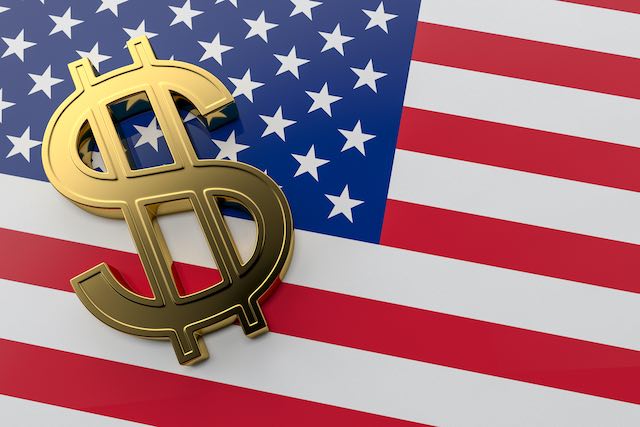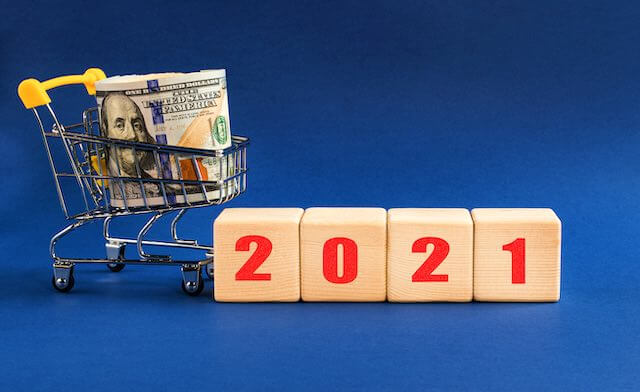Voting is now over in the 2021 presidential election. In a nation that is divided by partisan issues, neither party is inclined to give an inch on political issues. We do not know when all of the winners in this year’s national elections will be determined.
Joe Biden has been declared the winner of the presidential election in the media. The electoral college will meet in December to formally elect the next president and, presumably, Joe Biden will become the president-elect at that time.
We do not, of course, know what will occur with various legal challenges that are being raised. Presumably, any legal challenges will be resolved before the January inauguration and we will also know who will be sitting in Congress prior to the next Congress convening in January.
What impact will the election have on the federal employee pay raise in 2021, if there is even a raise on the horizon?
2020 has been a confusing, complex year. It will continue to impact our society, often in unexpected ways. For example, many federal employees are now working at home. Some were doing so before the pandemic but many were sent home to work after we knew more about the virus and its potential impact.
Portions of some major cities have been burned or destroyed by rioters. Some are surprised that local officials did not take more steps to prevent damage to property or to people, but in places such as Portland, Oregon, riots have been going on for months. There have even been instances of a small group temporarily taking over part of a city and some declaring they are no longer part of the United States and constitute a new political entity.
Crime has gone up in many places and in some jurisdictions, police have said they do not have the backing of politicians when they try to restore order. There is almost certainly a correlation between rising crime and less forceful actions taken by the police in these cities. In some cities, there are fewer police than there were a short time ago.
These situations were the backdrop to our national elections this year.
National Elections and Continuing Resolutions
With so many things going awry in 2020, we can expect all of these problems to impact voters’ decisions at the ballot box.
In some years, we know who the president-elect will be late on the day voting occurs. We do not yet know everyone who will be in Congress next year or what will happen with legal challenges being made to challenge the presidential election.
This uncertainty is likely to impact any federal employee pay raise. With all of the confusion, politicians are largely focused on keeping their jobs.
The new Congress will convene in January. The next president will be inaugurated on January 20, 2021. Congress is scheduled to reconvene on November 16, 2020.
Current Pay Raise Status
On October 1, 2020, President Trump signed a continuing resolution extending funding for the federal government until December 11, 2020. This prevented a government shutdown when current funding expired at the end of September.
The continuing resolution did not address any pay raise for 2021. This may have been, in part, because the resolution would expire in December and Congressional representatives wanted to know the election results.
So, in effect, whether there will be a federal employee raise in 2021 and how much of a raise there will be is still unknown.
How the Pay Raise is Determined
When federal appropriations bills do not set a pay raise for the next year, federal pay adjustments are governed by the Federal Employees’ Pay Comparability Act of 1990 (FEPCA). In practice, FEPCA has always been ignored.
Instead, the president can, and usually does, propose an alternative pay raise that ignores the FEPCA formula. If the president determines that “because of national emergency or serious economic conditions affecting the general welfare,” a pay adjustment would be inappropriate based on FEPCA, he can propose a different figure. This normally happens, if Congress has not acted, without regard to whether the president is a Democrat or Republican.
President Trump’s Alternative Pay Plan
Normally, an alternative pay plan is proposed in August. In 2020, President Trump transmitted his alternative pay plan for the calendar year 2021 to Congress on February 10th. President Trump’s plan was to increase federal pay rates by one percent in 2021. Under this plan, there would not be an adjustment to locality pay rates.
Will the Existing Congress Pass a Budget?
Of course, no one knows what action Congress will take on the federal budget. One possibility is that Congress will pass another continuing resolution and just leave it to the incoming Congress to work out an agreement.
Another delay is a real possibility. There may still be legal battles being waged to determine the outcome of the national elections. That may mean that many in Congress, and the president, will be focused on determining which party controls the White House and the Senate.
Political animosity is high. Neither party wants to give the other side any credit or to gain political currency. This makes it more difficult for Congress to reach an agreement on a budget.
Will 2020 Events Repeat 2018?
Some of the same factors exist now as were present in 2018.
Late in 2018, the Senate included language in a bill that would have provided a 1.9% pay raise for federal employees. That was not approved by the House which was about to return to the control of Democrats as a result of mid-term elections.
No final appropriations bill was approved in Congress in 2018. Instead, after a new Congress convened in 2019, a 1.9% raise was approved in February. The raise was made retroactive to the start of 2019.
So, we know from recent experience that a raise can be delayed until the start of a new year and then become retroactive.
What Will Congress Do?
It is possible that Congress will convene in December, overcome animosity of the campaign, and reach an agreement on a budget. Should that occur, there is a good chance President Trump would sign the bill if it does not contain language trying to overturn the administration’s accomplishments while he is still in office.
If a bill is passed by Congress this year, it may address the amount of any federal employee pay raise for next year.
If a new budget agreement is reached this year and does not address the pay raise, President Trump’s alternative pay raise proposal of one percent for 2021 for the federal workforce could end up being the actual pay raise amount.
At this moment, it appears that we will have Joe Biden as president after the inauguration as well as a new Congress. How this will impact the passing of a budget for the current fiscal year by the current Congress remains to be seen. One possibility is that both parties would decide it is in their best interest to pass a budget now. If that occurs, we may know the amount of the 2021 pay raise by the end of this year.
What About the COLA and Health Insurance Increases?
Federal employees will be paying about 4.9 percent more on average for their health insurance in 2021.
Some will argue that the average increase for the federal employee health insurance program means their raise should be 4.9% to make up for the health insurance increase.
While it may be true that a 4.9% pay raise would be fair for this reason, the argument is not relevant. Health insurance rates have been going up faster than annual pay increases for a long time. There is not a history of health insurance rates impacting a pay raise. There is not any indication it will be any different in 2021.
We also know that the cost of living adjustment for Social Security recipients and federal retirees in 2021 will be 1.3%. Some readers have commented that they will be receiving 1.3% as a federal employee pay raise in January based on an inflation index.
If you are a retired federal employee, the full annual COLA increase in 2021 will be 1.3%. This does not have any direct impact on any raise for current federal employees. The annual COLA for retirees and Social Security recipients is a different process based on an inflation index and impacts a different group of people.
The annual pay raise for current employees is a political decision made in a political environment. Any impact of the COLA or health insurance rate increase for 2021 is largely coincidental.
The process of determining the annual pay raise for federal employees is long and complex. The current political environment makes it more difficult for Congress to reach a budget agreement.
Confident predictions in the outcome are unlikely to be accurate. FedSmith will continue to inform readers as new events occur that impact next year’s pay raise.





